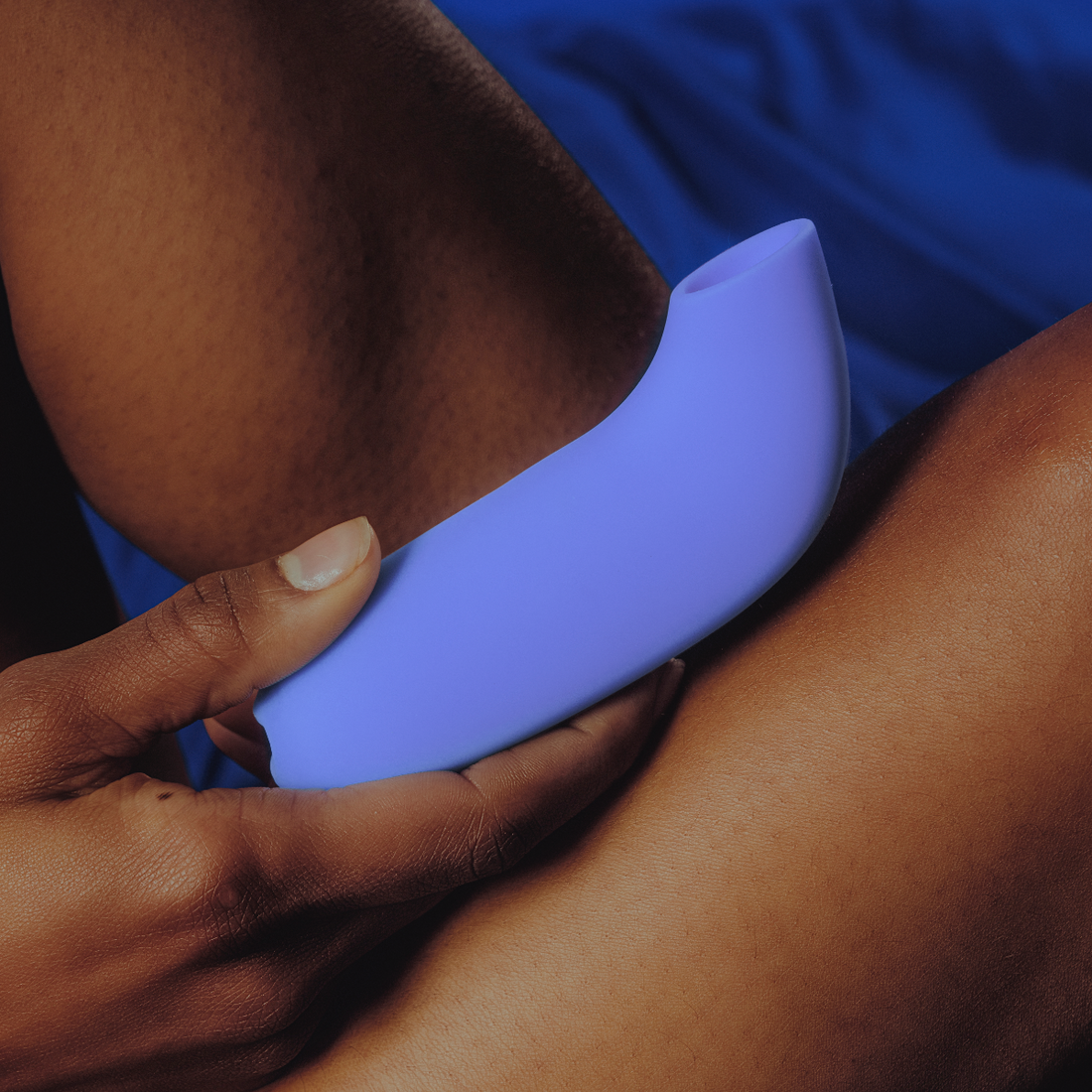Have you ever been in the midst of sexy time, felt totally turned on in your brain and yet couldn’t seem to get wet? Or maybe you’ve found yourself wet and physically aroused when what you were doing was entirely unsexy and getting it on was nowhere near your conscious mind? Trust me, you are not alone. In fact, this is the norm for most vulva-havers. This is called arousal non-concordance. It’s when your brain and body don’t match up: Your brain isn’t turned on, but your body is (or visa versa). “Arousal non-concordance is very common in women,” says Kristine D’Angelo, certified sex coach and clinical sexologist. “There's a 10% overlap in what women's genitals find sexually relevant and what her brain finds sexually appealing.” There have been several names given to the effect that stress, nerves, and in-the-moment happenings can have on penises and their ability to become erect—stage fright, performance anxiety, nervous dick—but we don’t afford that same airtime to vaginas. Our minds and bodies are inextricably linked. Sex is not just about rubbing a clit until an orgasm happens; it takes concentration and staying in the moment to actually enjoy all the clit-rubbing. If you’ve had trouble “rising to the occasion,” so to speak, during sex, please know that you’re not broken, and that you fall inside of the general population of those who own vaginas.
What Performance Anxiety Is and Who It Affects
Anyone and everyone, regardless of the genitals they have, can experience stage fright during sexual experiences. There is nothing wrong with this. When you live in a culture that is so sex-negative that you walk into sex both knowing nothing and thinking you should know everything, that’s pretty damn scary.
The more worried you are about these physical symptoms, the more likely they are to occur.
When you’re nervous, your body responds. “We know that the biggest sexual organ is the brain, and that sex straddles the physical, psychological and physiological; and so the impact of our thoughts and feelings can absolutely change our sexual experiences,” notes Kate Moyle, a psychosexual and relationships therapist. Basically, when you’re worrying about how you look naked, what you have to do later that day, or whether or not you’re “doing sex right,” it’s highly likely that your physical arousal will be thrown off-kilter.
How Vulva-Havers "Freeze Up" in the Bedroom
There are so many ways in which the body could respond to “freezing up” during a sexual experience. This can present as muscle tension (the most severe version being vaginismus), ticklishness, numbness, dryness, lack of orgasm, or even pain. “Not getting wet and not orgasming despite being mentally aroused are pretty common,” says Pam Shaffer, MFT, a licensed marriage and family therapist. “The opposite comes up in therapy sessions as well, where clients have reported that their bodies seem to be aroused but they are mentally checked out or turned off. This can lead to a whole shame spiral when people feel out of sync with their own bodies.” And the kicker? The more worried you are about these physical symptoms, the more likely they are to occur. “Sexual energy needs to be able to flow through your body allowing awareness of sensation and pleasure in your body,” says D’Angelo. Sexuality and the psyche are completely intertwined and need to be in sync to have optimal pleasure and positive experiences. When you put up a mental block, it stops the feelings of pleasure from fully forming.
Getting Out of the Negative Feedback Loop
This may all sound like the biggest bummer in the history of ever, but there are ways out of sexually-induced performance anxiety. It all begins with self-love and acceptance. If you aren’t comfortable in your own body and sexuality, you’re unlikely to be able to fully experience all the pleasure your body is capable of experiencing. Shaffer says that you can begin to bridge the gap by using maturbation as a guiding tool. “It's a great idea to explore what turns you on and what makes you feel safe both with partners and otherwise,” she says. “There's no shame in experiencing non-concordance so investing in self discovery and a good lube is a wonderful way to deal with a totally normal phenomenon.” Lube is always a good idea. Next, we need to have open and honest conversations with our sexual partners. We all go into sex hoping that we’ll have orgasms and make our partners feel good, too. Being honest about how you’re feeling both physically and emotionally can assist in getting over your nerves. “Begin explaining in detail what you're experiencing during sex. You and your partner can begin exploring context that brings in comfort, relaxation and awareness of your pleasure,” D’Angelo says.
"Being goal-oriented creates more pressure, and can interrupt our experience of pleasurable physical sensations."
Lastly, we need to take the pressure off sex and stop being so hung up on goals. Rarely is there an orgasm to be had if we’re focusing on the need to have one. It’s a bit of sexual Catch-22. Sex should be fun, not a mad dash to be an Olympian. “Many women report struggles to orgasm if they are in a stressed and anxious state, and we often see this being the case when the focus and goal of sex becomes achieving orgasm, that it's often harder to reach,” Moyle says. “This is because being goal-oriented creates more pressure, and our thinking can interrupt our experience of the physical sensations that are bringing us pleasure, so getting in our heads interrupts us fully being in our bodies.”
Why We Almost Never Hear About This
The straightforward answer is that when it comes to having intercourse, the functionality of penises are considered by society to be the most important factor. We pay less attention to the vagina, or to the fact that nearly no one who owns a vagina has orgasms through intercourse, or to the ways to maximize vaginal comfort during intercourse. As messed up as this fact is, it’s an objective truth. When you can physically see something (such as a penis getting or not getting hard), it’s a tangible tell that something isn’t “going according to plan.” Since the vagina could technically still be receptive to a penis whether or not a vagina-owner is physically aroused, we don’t give vaginal stage fright much notice … even if it is, in the words of neuroscientist and sex therapist, Dr. Nan Wise, “like trying to go down a water slide without any water.” *Full body shivers* Bottom line: We need to start paying attention to vaginal and clitoral arousal and give it the attention it deserves. It’s extremely important to pleasurable sexual experiences … which will ultimately benefit everyone’s sex lives. The more pleasure you have during sex, the more you’ll want to have it.




















































